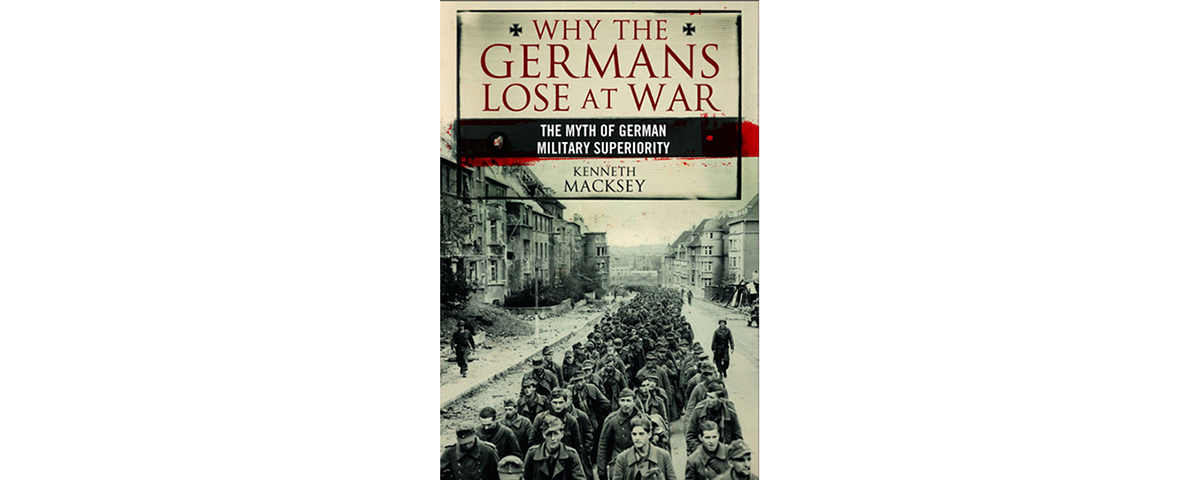Why the Germans Lose at War: The Myth of German Military Superiority, by Kenneth Macksey, Pen & Sword Books, Barnsley, U.K., 2018, $26.95
Having the best army does not necessarily equate to victory—so concludes a new edition of this illuminating account of German military operations in the century after its 1871 unification. Military historian and World War II veteran Kenneth Macksey gives Frederick the Great (1712–86) due credit for laying the foundation of German military prowess, but his improvements had moldered by the following century.
Historians date the modern German army to reforms by Helmuth von Moltke, chief of the General Staff from 1857 to 1888, which led to victories against Denmark (1864), Austria-Hungary (1866) and France (1870–71). But as Macksey points out, these were brief wars against less than competent opponents in which a fierce offensive spirit overcame deficiencies in supply, communications and tactical intelligence.
Though a cliché, it’s true that armies learn more from defeat than victory. What Germany learned from its victories was that its soldiers were the best: superbly trained and equipped and led by officers encouraged to think for themselves (Hollywood gets it wrong). Unlike other European armies, merit rather than political influence governed appointment to its General Staff, resulting in a more seamless, efficient administration.
It’s a fact that 20th century German units inflicted more damage than those of any other nation, so despite the book’s title, their military preeminence was not a myth. Yet military preeminence seems to offer only short-term advantages. Warrior nations may win battles, but they often lose long wars to stubborn, if less warlike, opponents with superior resources. Examples include Napoléonic France, the Confederate States of America and imperial Japan, as well as 20th century Germany. Except during wartime, Americans did not revere their national army. That changed with the end of conscription in the 1970s and the subsequent development of a highly trained professional military that may be history’s best. It has proved invincible—except in long wars.
Macksey largely provides a nuts-and-bolts narrative of how Germany’s high command conducted two world wars. The author rocks no historical boats by complaining that Adolf Hitler regularly overruled his generals, often with disastrous results, though he does note that instinct worked brilliantly early in the war. Hitler was a very aggressive commander. While extreme aggression may cow weak opponents, however, it doesn’t work so well against bigger fish.
Observers who suggest Hitler crippled Germany’s war machine must explain 1914–18, when the army achieved the warrior’s dream: fighting without civilian interference. Its General Staff pushed Germany into war, made all the strategic decisions, essentially governed the nation and blundered as often as Hitler.
There is no shortage of books explaining why Germany lost both world wars despite fielding the best army, but Macksey’s account helps clarify why.
—Mike Oppenheim





